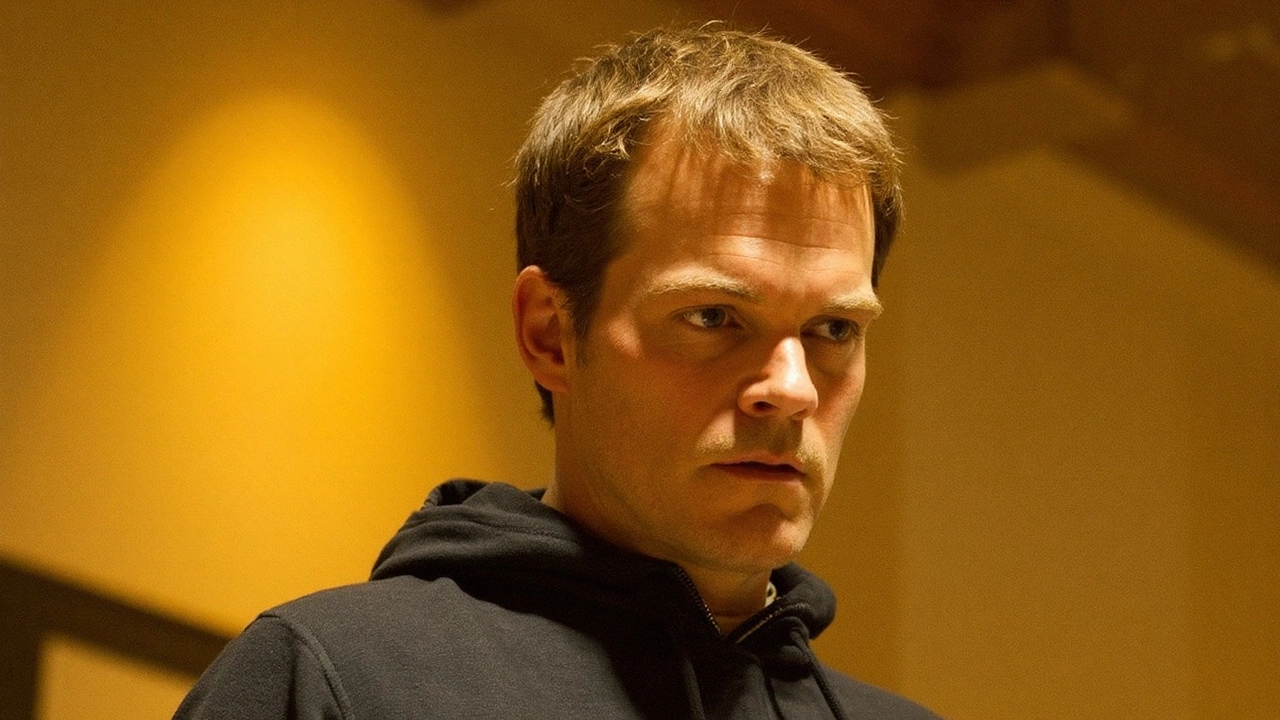Dexter Morgan: The Crime‑Drama Icon Who Walks Two Worlds
When talking about Dexter Morgan, a fictional blood‑spatter analyst for Miami Metro Police who secretly hunts other killers. Also known as the Dark Avenger, he blends forensic science with a personal code of justice. Miami Metro Police Department provides the official backdrop, while The Dark Passenger fuels his hidden urges.
Dexter’s double life is the core of the series’ appeal. By day he applies rigorous forensic methods, cataloguing blood patterns and solving murders. By night he follows a strict moral checklist, targeting only those who escaped the legal system. This split creates a clear semantic triple: Dexter Morgan encompasses both forensic analyst and vigilante killer. The tension between his professional duties and personal mission drives every episode.
Family plays a huge role in shaping his code. His adoptive sister, Debra Morgan, is a tough detective who unknowingly shields him from suspicion. Their bond illustrates another triple: Debra Morgan influences Dexter’s ability to stay hidden. Meanwhile, the ghost of his father, Harry Morgan, appears in flashbacks, offering the “code” that keeps Dexter’s urges in check. Harry’s moral framework links directly to the Dark Passenger, showing how upbringing can channel dangerous impulses.
Key Themes: Forensics, Morality, and the Dark Passenger
Forensic science isn’t just a backdrop; it’s a character in its own right. Blood spatter analysis, DNA profiling, and crime scene reconstruction give Dexter a legitimate reason to be near every murder. This connection creates the triple: Miami Metro Police Department requires forensic expertise, which Dexter provides. The series also explores the ethical gray area of vigilante justice, prompting viewers to ask whether the ends ever justify the means.
The Dark Passenger, a term Dexter uses to describe his compulsion, acts as a psychological engine. It’s more than a plot device—it’s an embodiment of his inner conflict. When the Passenger is strong, Dexter feels unstoppable; when it wanes, he doubts his purpose. This dynamic yields the triple: The Dark Passenger influences Dexter’s killing decisions. Episodes often show him wrestling with the Passenger, seeking balance between humanity and monster.
Romantic relationships add further layers. Dexter’s love interests, from Rita to Hannah, each bring new challenges. They force him to hide his secret life, testing the limits of his code. The pattern here is clear: personal relationships constrain Dexter’s ability to act on the Dark Passenger. These storylines broaden the tag’s relevance, covering both crime drama and personal drama aspects.
Beyond the main cast, the series introduces recurring antagonists who mirror Dexter’s darkness. Characters like the Trinity Killer or the Doomsday Killer serve as dark reflections, showing what Dexter could become without his code. This creates the triple: Antagonists exemplify what happens when the Dark Passenger runs unchecked. Their presence reinforces the series’ moral questions.
Music, setting, and visual style also contribute to the mood. The vibrant Miami skyline contrasts sharply with Dexter’s shadowy deeds, emphasizing the duality theme. Each episode’s opening sequence features a swirling blood drop, a subtle nod to his forensic roots. This visual language ties back to the central entity, reinforcing his identity.
Fans often debate whether Dexter is a hero or a villain. The series invites that discussion by never giving a simple answer. By presenting both his meticulous investigations and his brutal killings, the show creates a nuanced portrait that sparks conversation. This debate underscores the importance of the tag: it gathers content that explores all facets of Dexter’s character.
For anyone new to the series, the tag offers a quick gateway to understand the main players, the code, and the psychological underpinnings. You'll find posts breaking down forensic techniques, dissecting the moral code, and analyzing how the Dark Passenger shapes each season. Whether you’re after episode guides, character deep‑dives, or fan theories, the collection below has you covered.
Ready to dive into the world of a blood‑spatter analyst who walks a razor‑thin line between order and chaos? Below you’ll discover articles that unpack the science, the psychology, and the drama that make Dexter Morgan a lasting pop‑culture figure. Let’s explore the layers together.
Dexter: Resurrection finale rewrites Dexter Morgan with a rare act of self‑sacrifice
The final five minutes of Dexter: Resurrection flip the franchise on its head. Dexter offers his own life to save Harrison, apologizes for failing to protect him, and then breaks the fourth wall to define his identity. After killing Leon Prater and taking a cache of files on other killers, he embraces a new mission. It tees up season two with a character who is both changed and steadier than ever.
